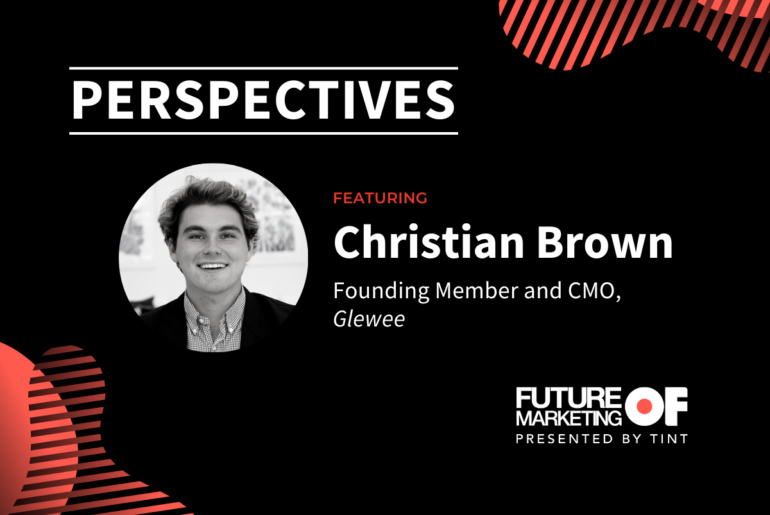The COVID-19 outbreak has caused significant stress among businesses and consumers around the world, highlighting marketing lessons to consider as we redefine the norm. While some executives pivot their business, others stand back – demonstrating the complexity of the situation and the challenge to appropriately respond. McKinsey reports, “What leaders need during a crisis is not a predefined response plan but behaviors and mindsets that will prevent them from overreacting to yesterday’s developments and help them look ahead.”
When it comes to uncertainty, a preconceived checklist is not enough to make agile decisions in an unpredictable environment. Overcoming chaos takes leadership, complex-thinking, open collaboration, responsiveness, a deep ability to focus – all while understanding that things can (and will likely) change.
True leaders, regardless of their role, accept the reality of the circumstances and work to understand the economic and behavioral shifts taking place internally and around the globe. They use insights to build community, create a common purpose, and provide psychological safety to motivate employees and consumers during unprecedented times. After all, the way you make people feel – employees and consumers alike – directly impacts your brand’s reputation.
Listening, acting with purpose, and creating a positive environment during dark times can help drive the success of your brand. When you empathize and make a genuine effort to connect with your employees and customers – their “gut feeling” changes for the better, inciting confidence in leadership and the motivation to seek stronger solutions amidst the turmoil.
As the world shifts to a new future, we face the debate of what the next norm will entail – and how much it will diverge from the life we were used to.
Understand the global sentiment
For some brands and people, survival is the only goal. Others are embracing uncertainty, wondering how to position themselves now for when the world returns to normal.
From motivations to frustrations, once you identify how disruption impacts your team, customers, and the global landscape, potential threats and opportunities become much clearer.
Understanding economical shifts and the effects on people’s behaviors and patterns, will allow you to track and compare new insights against your predefined audience personas – approaching your next marketing moves more thoughtfully and tactfully.
Create contingency plans
Research has demonstrated that the difference between brands that succeed in a downturn and those that fail is preparation. “The pause-assess-anticipate-act cycle should be ongoing, for it helps leaders maintain a state of deliberate calm and avoid overreacting to new information as it comes in,” states McKinsey.
To mitigate surprises and adjust more effectively, McKinsey suggests creating three scenarios with your team (consider using design-thinking to create a strategy sprint session and boost collaboration).
Divide your scenarios into best-case, worst-case, and realistic outcomes in order to determine what resources you have available – and how you can best leverage your team, budget, and tools in a given situation. Including department leaders will allow you to hear different pain points and perspectives – and help to identify opportunities you could otherwise miss. This is one area in which a strong, multidisciplinary team can add significant value.
“Discovery increasingly requires the expertise of individuals with different perspectives – from different disciplines and often from different nations – working together to accommodate the extraordinary complexity of today’s [challenges]” (National Science Foundation).
A nimble team, clear mission, and room for experimentation can demonstrate a leader’s decisiveness – and motivate people to contribute and strengthen communication.
Engage and motivate
During a crisis, leaders must become more aware of their communication style, and avoid misleading or leaving customers – and employees – in the dark. Withholding information as you wait for the facts during uncertain times limits people from providing accurate feedback and can damage your brand’s reputation.
Harvard Business Review shared, “Hiding bad news is virtually a reflex in most organizations, but thoughtful leaders recognize that speaking up early and truthfully is a vital strategy in a fast-moving crisis. Reputation must be seen as a long-term game.”
Consider the psychological effects and financial impact many people are dealing with before you communicate and launch your next social media campaign. Instead, stop and assess your messaging strategy, refine social media policies, and monitor social sentiment. This is another opportunity to consider perspectives from various teams – including sales, marketing, customer service – and use insights to strengthen focus.
Providing clear communication and offering a positive – yet realistic outlook – can have a powerful effect on high-value employees and customers, motivating them to champion your organization’s recovery and reputation.
While the reality of the future remains unclear – with open communication, empathy, and collaborative thinking, brands can reinvent the norm and provide the psychological safety many are seeking during these times.
Strong brands and new lessons will emerge from the chaos – and those that shine light during the dark will redefine what it means to lead.





